
The End of a Deathly Living
Their clothes, hands and faces caked with layers of black soot, two young Palestinian men stand ankle deep in the remains of a charcoal making plant in the West Bank. They are taking a well earned break from packing chunks of slow-burned wood into thick paper sacks which they then stack in piles to await collection by Israeli charcoal merchants.
The welcome break means time for a cup of strong coffee, a chat and - as if the immediate surroundings are not already hazardous enough to their own and everybody else’s health – they light up cigarettes.
A horse by the name of Riad is tethered to a tree, its leaves blackened by years of billowing smoke from the charcoal plant. Riad swishes flies with his tail and every now and then shakes his head to get rid of those on frontal attack.
A large satellite dish firmly planted in the sooty ground seems totally out of place in the charcoal making plant situated in the northern part of the West Bank known as the Dotan Valley and where Joseph was purportedly thrown into a pit by his brothers when they passed through the area in Biblical times.
Facing the Israeli coastline, the satellite dish sits 20 meters from a makeshift tent erected from plastic netting. The workers – there were 10 in the past, but now down to 3 - have a few rickety sofas, a table and, of course, a television under the awning, a replacement for the rusty bus on the other side of the plant that used to be their shelter but was recently totally wrecked by a civil administration bulldozer.
True to the unnatural natural surroundings, the small television is black and white. Actually it is more of the former and less of the latter with the satellite dish being at least four times larger than the television set it services.
The Palestinian workers are in their early twenties. The young men pass through the Barta’a-Reichan checkpoint at six in the morning and return to their village near Jenin around four in the afternoon, again via the checkpoint in the security fence constructed by Israel following deadly terrorist attacks in the early part of the new millennium.
Riad, the horse, doesn’t do checkpoints but stays in the area with the locals.
The charcoal operation is situated in an area which this writer has dubbed ‘Limboland’ – over the Green Line (pre-'67 border) to Israel but west of the security fence and checkpoint therein, a sort of not here nor there zone. Not annexed by the State of Israel, divided up into Areas B and C after the Oslo Accords and inhabited by both Israeli Jews living in six settlements set up in the early 1980s and the local Palestinian population, the majority of whom are not allowed to cross the line into Israel for work purposes or family visitations unless holders of special permits which the vast majority, and certainly young unmarried men, do not have. Physically, however, there is absolutely nothing stopping the young men in the charcoal plant from driving or walking over the Green Line a short distance from their workplace and going on to Hadera or Tel Aviv for that matter.
They can go ‘out’ in the same manner as the writer came ‘in’ – most people wouldn’t even know when they have crossed the Green Line, as it is neither marked by signs nor a line of any color painted across the road. Palestinian locals talk in terms of ‘over here’ or ‘over there’ or ‘inside’ meaning the West Bank, or ‘outside’ meaning over the Green Line and the State of Israel.
The majority of Palestinians in this area do not risk going from inside to outside if they do not have the necessary paperwork. If they were to be apprehended by the Israeli police they would likely end up having to pay a heavy fine, maybe spend a few months in prison or even both. The young men at the charcoal plant have permits allowing them to pass through the Barta’a-Reichan checkpoint only to work in Area C of the West Bank, or East Barta’a, an Area B under the Palestinian Authority but west of the security fence – all rather confusing and complicated but part of the daily lives of thousands of Palestinians passing through this particular checkpoint in the morning and returning in early to late afternoon. Only a few hundred have permission to carry on out of ‘Limboland’ to work in Israel, the rest being restricted to either Area B or C inside the swath of land between fence and line.
Communicating in a little English, some Hebrew and lots of hand gestures, one of the young men explains that he is studying Developmental Sciences at a West Bank university when not working. The charcoal plant is owned by a Palestinian from Yabed, a large village 15 minutes drive away, deeper in the West Bank and on the other side of the security fence.
Over the months, scores of such charcoal making operations have been forced to shut down. The Ministry of Environment and Civil Administration warrants of closure for health and environmental reasons issued by those bodies during the last year were totally ignored by the Palestinian charcoal makers who have no other means of making a livelihood, and the majority of whom are not allowed over the Green Line to work in Israel. That is why these operations still exist.
When enquiries were made by this writer as to why the charcoal operations were still working and creating havoc with the health of the Palestinians living permanently in the area, and definitely becoming a bother to the Israeli communities living a few kilometers away, the answer was that it was a sensitive issue with so many Palestinian families deeper in the West Bank totally reliant on the charcoal industry.
Wind-borne smoke recognizes no borders, boundaries, lines or fences.
The constant supply of tree trunks and branches came from Israel, sold to the Palestinians by Israeli dealers who purchase fruit trees and other trees being cleared for building projects. Turned into charcoal, it would find its way back to Israel, fueling the barbecues of Israeli Jews and Arabs who would likely have bought a sack or two from the local supermarket.
Charcoal making operations have been a common sight throughout the West Bank for decades, but over the last few years as permits for Palestinians to continue working in Israel became restricted, many more wood-burning operations began to sprout up in the West Bank – particularly in the Dotan Valley, providing the local Palestinian population with a source of work, but further polluting the air 'big time' whilst making their deathly living.
The young men in the scorched fields of the Dotan Valley are now on a clearing up operation, basically packing up and sending off the remaining charcoal. When asked about what they will do for work after that, they look at each other, shrug and light another cigarette.
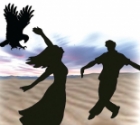 That Certain Smile
That Certain Smile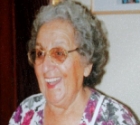 Fay Shelter 1919-2012
Fay Shelter 1919-2012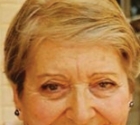 Doreen (Devorah) Goldberg 1924 – 2012
Doreen (Devorah) Goldberg 1924 – 2012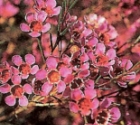 From Australia with Love
From Australia with Love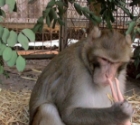 Monkey Tales
Monkey Tales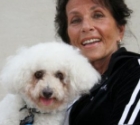 A fresh spirit of Zionism from Manhattan
A fresh spirit of Zionism from Manhattan Lydia Aisenberg
Lydia Aisenberg